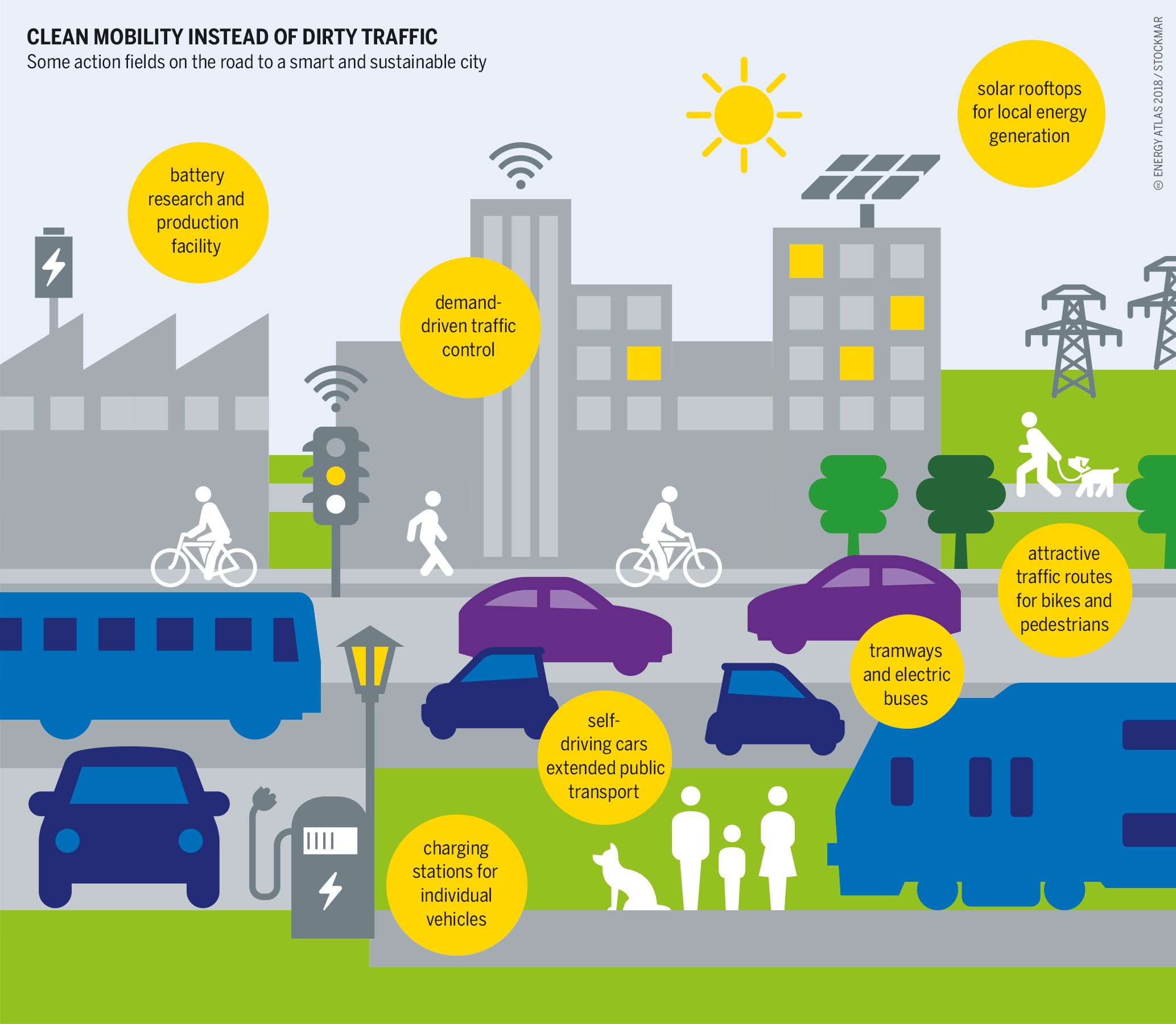Sustainable transport refers to the movement of people and goods in a manner that minimizes negative environmental, social, and economic impacts while meeting present and future mobility needs. It aims to reduce reliance on fossil fuels, minimize greenhouse gas emissions, promote energy efficiency, and create healthier and more livable communities.
Key principles of sustainable transport include:
- Environmental friendliness: Sustainable transport seeks to minimize the environmental impact associated with transportation, including reducing air and noise pollution, conserving energy, and mitigating climate change.
- Energy efficiency: It focuses on optimizing energy use by employing technologies and practices that reduce fuel consumption and improve the energy efficiency of vehicles and transportation systems.
- Accessibility and equity: Sustainable transport aims to provide affordable and accessible transportation options for all members of society, regardless of income, age, or physical ability, ensuring equitable access to education, employment, and essential services.
- Multimodality: It promotes the use of multiple modes of transport, such as walking, cycling, public transit, and shared mobility options, to offer diverse and integrated transportation choices and reduce reliance on single-occupancy private vehicles.
- Urban planning and land use: Sustainable transport advocates for compact, mixed-use development that reduces the need for long-distance travel, encourages active transportation, and facilitates efficient public transit systems.
- Technological innovation: It encourages the development and adoption of cleaner and more sustainable technologies, including electric and hybrid vehicles, renewable fuels, intelligent transportation systems, and alternative propulsion systems.
Examples of sustainable transport initiatives include the expansion of public transit networks, the promotion of cycling and walking infrastructure, the implementation of car-sharing and ride-sharing programs, the electrification of vehicle fleets, the integration of renewable energy sources into transportation systems, and the use of smart transportation technologies for traffic management and optimization.
By adopting sustainable transport practices, societies can reduce their carbon footprint, improve air quality, enhance public health, foster economic development, and create more inclusive and livable communities.
White paper on Sustainable transport
Title: Sustainable Transport: Towards a Greener Future
Abstract: This white paper examines the concept of sustainable transport and its significance in creating a greener and more environmentally friendly future. By exploring various aspects of sustainable transportation, including alternative fuels, public transportation systems, electric vehicles, cycling infrastructure, and urban planning, this paper aims to highlight the importance of transitioning towards sustainable transportation models. Additionally, the white paper discusses the economic, social, and environmental benefits of sustainable transport and provides insights into policies, technologies, and initiatives that can promote its adoption on a global scale.
- Introduction:
- Definition and significance of sustainable transport
- Purpose and structure of the white paper
- Environmental Challenges and the Need for Sustainable Transport:
- Impact of transportation on climate change and air pollution
- Role of transportation in energy consumption and resource depletion
- Overview of the environmental benefits of sustainable transport
- Alternative Fuels and Energy Sources:
- Overview of alternative fuel options (biofuels, hydrogen, natural gas)
- Advantages and challenges associated with each fuel type
- Infrastructure requirements for supporting alternative fuels
- Innovations in renewable energy integration for sustainable transport
- Public Transportation Systems:
- Importance of efficient and accessible public transportation networks
- Case studies on successful public transport systems worldwide
- Integration of technology for improved public transport services
- Funding and policy considerations for public transportation expansion
- Electric Vehicles:
- Growth and development of electric vehicle technology
- Benefits of electric vehicles in reducing emissions and dependence on fossil fuels
- Charging infrastructure and battery advancements
- Government incentives and regulations to promote electric vehicle adoption
- Active Transportation: Cycling and Walking:
- Advantages of cycling and walking in urban environments
- Infrastructure development for safe and convenient cycling and pedestrian pathways
- Health, economic, and environmental benefits of active transportation
- Encouraging active transportation through urban planning and policy
- Intelligent Transportation Systems and Data Analytics:
- Role of technology in optimizing transportation systems
- Intelligent transportation systems for traffic management and congestion reduction
- Data analytics for efficient route planning and demand management
- Integration of smart technologies in sustainable transport initiatives
- Urban Planning and Sustainable Mobility:
- Importance of integrating transportation planning with land use planning
- Designing cities for walkability, bikeability, and efficient public transport
- Transit-oriented development and mixed-use zoning
- Creating sustainable transportation hubs and intermodal connections
- Economic and Social Implications:
- Economic benefits of sustainable transport (job creation, reduced fuel costs, increased productivity)
- Social equity considerations in transportation planning
- Health and well-being impacts of sustainable transport options
- Assessing the cost-effectiveness of sustainable transport investments
- Policy, Regulations, and International Cooperation:
- Government policies and regulations to support sustainable transport
- International agreements and initiatives for sustainable transportation
- Public-private partnerships and collaboration for sustainable transport solutions
- Best practices and case studies from countries leading in sustainable transport
- Future Outlook and Challenges:
- Emerging technologies and trends in sustainable transport
- Overcoming barriers to adoption and implementation
- Role of education and awareness in promoting sustainable mobility
- Long-term sustainability goals and targets for the transport sector
- Conclusion:
- Recap of key findings and insights
- Call to action for stakeholders to prioritize sustainable transport
- Implications for a greener future and the benefits it offers
This white paper aims to provide a comprehensive understanding of sustainable transport and its role in mitigating environmental challenges. By exploring various sustainable transport options, policy considerations, and societal implications, readers will gain insights into the importance of transitioning towards



